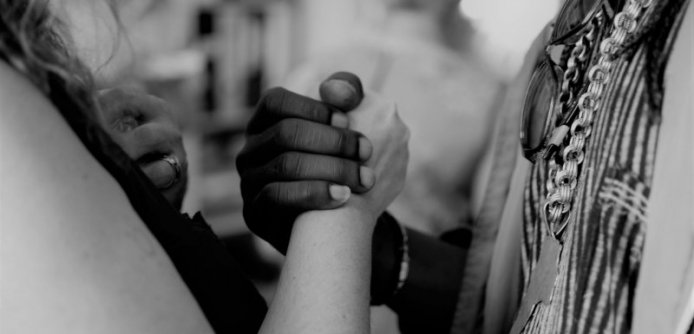What is Cancel Culture?
This seemingly new trend is one of promoting the ‘cancellation’ of people, brands or television shows as a result of what some (the cancellers) perceive to be some form of offensive comment, remark, view or behaviour. It has surged on social media with various derogatory hashtags, notably #RIP.
A recent high profile ‘celebrity’ who has been on the receiving end of social media trends to have her cancelled is J.K. Rowling for her, views on transgender issues that some find offensive.
Is it that new?
The term may be new and the platforms used may serve to whip up a storm of support against those who some wish to have cancelled, however the concept is by no means new at all. Cancel culture is essentially a form of social banishment whereby in traditional tribal communities one of the most severe punishments would be the banishment from the tribe: to be cast out.
To be cast out of ones tribe would mean more than social death; if not literal death through being vulnerable to attack from predators and other tribes, banishment most certainly meant the death of the sense of belonging, which in psychological terms, could potentially instigate a psychic collapse (going mad).
However, whilst this may seem primitive, historical and anthropological evidence shows that it would be a punishment of last resort and would be handed down by the elders of the tribe – in other words, there would be some form of judicial process in place that sanctioned the banishment.
This is where cancel culture differs profoundly from tribal banishment or ‘being cast out’. It is not a decree from wise elders or some sort of judiciary; it is generally used as an attack against the views, opinions or behaviours of others that some disagree with.
Why does it matter?
Put simply, it matters because there seems to be an ever decreasing array of opinions and voices allowed and cancel culture is an immature way of trying to ‘kill off’ anybody holding views or opinions that may not be comfortable for others to hear.
Feeling offended and causing offence
There is a difference between a person feeling upset or even offended by another’s views and with another trying to purposely hurt a person or group of people. The former is what we may experience when we encounter others and are confronted by a different perspective. The latter is when we encounter sadism.
Sadism is unacceptable and should not be tolerated, however the mark of being an adult is the capacity to tolerate a different perspective and a different mind. Even if we may feel offended.
On mergers and separation
Although separate from its mother, an infant, when born, cannot differentiate between their mother and themselves. In essence they believe that their mother is an extension of them. Of course, in reality, the mother in question is very much as separate entity, at least physically, and thus will eventually fail to meet the needs of her infant. This is extremely frustrating for the infant in question and the mind of the infant concocts an ingenious defence against the pain of separation – a good and a bad mother is created: the infant imagines it is the good mother who meets all their needs and the bad mother who frustrates them. It is a primitive psychological defence called splitting.
Infants split off the bad until through ‘good enough’ parenting they eventually integrate the two mothers and tolerate reality: mother is not part of them and frustrates them as she has a different mind and a different set of needs. However, mostly, she seems to meet their needs so on life goes and importantly, on psychological maturation goes. The child is on the path from mergers to a world where they can be in separate relationships with others and tolerate a different mind.
Why cancel culture is simply splitting by another name
To be unable to contain ones feelings when confronted by a different perspective and thus a different mind shows a lack of psychological maturity. The world is split into ‘good and ‘bad’ like in a child’s fairy tale. Bad must be killed off so good can live happily ever after. This is not how the real world works; it is how cancel culture works.
How does cancel culture relate to psychotherapy?
In essence, psychotherapy is about outgrowing cancel culture. It is about learning to be in a relationship where difference can be tolerated and acknowledged, without this needing to be threatening. For some this means they must learn for the first time to bring their needs ‘into the mix’ – something that can feel really confronting and may bring on fears of rejection and abandonment. For others it may mean the opposite which is to be able to cope with the separateness of their psychotherapist and tolerate this without throwing away ‘all the good’ – without ‘cancelling’ them, if you like.
Being an adult means tolerating the frustrations of the real world and the frustrations of the others who make up the real world. However, if this can be tolerated then real relationships are possible and people can locate substance and meaning thus moving them out of a fear/threat pattern into adult relating patterns.
If you would like to work on your own intolerances and relationships, get in touch with us to discuss whether psychotherapy may be appropriate for you.
Mark Vahrmeyer, UKCP Registered, BHP Co-founder is an integrative psychotherapist with a wide range of clinical experience from both the public and private sectors. He currently sees both individuals and couples, primarily for ongoing psychotherapy. Mark is available at the Lewes and Brighton & Hove Practices.
Further reading by Mark Vahrmeyer
Why does the difference between counselling and psychotherapy matter?
Why am I feeling more anxious with Covid-19?
Coronavirus Lock-Down – Physical Health Vs Mental Health


